Wildseed Studios are commissioning new ideas - an interview with Miles Bullough
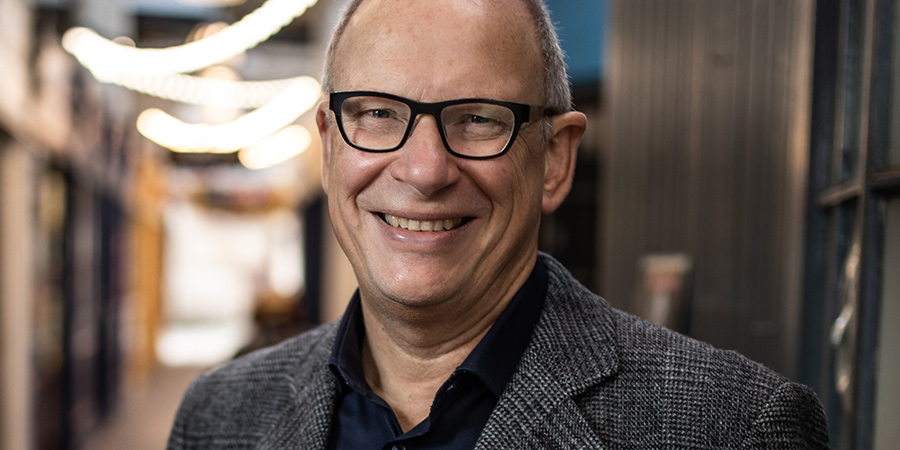
In July, production company Wildseed Studios announced is relaunching its ideas submission portal. In October it will be inviting creators to submit a project in live action or animation, for the chance to secure up to £10,000 in development funds.
BCG Pro caught up with co-founder and managing director Miles Bullough to find out more about what they're looking for, and how best to format your submission to catch their attention.
Hi Miles. So, Wildseed Studios - created by yourself and Jesse Cleverly - has been producing comedy for a while now, but you're a little different than the average production company...
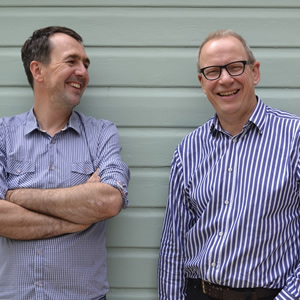
Yes. So, a refresher on Wildseed: We set ourselves up to try and be a bridge between new talent - people who are working on digital platforms, but out of their back bedrooms and often on their own, and doing great work but lacking mentorship and lacking that sort of 'wise old owl' to advise them how to make their stuff truly great - and large companies, who really just don't have the bandwidth to reach down into the grassroots and try and help unschooled talent get to the place where they need to be in order to be producible for primetime platforms.
We launched a submissions portal [in 2013] as a completely level playing field. Anyone could submit a project to us, pretty much in any form. We reached out via all the usual channels, social media. We had a really, really massive response. I mean, thousands of people sent us projects. We responded to all of them individually.
Over the first sort of four or five years we had nearly 4,000 submissions, and we got involved with about 40 of them. So, we have like a 1% hit rate in terms of people that we get involved with. Of those 40, we sort of managed to find deals for about 15 of them.
We've got three or four poster children for our scheme:
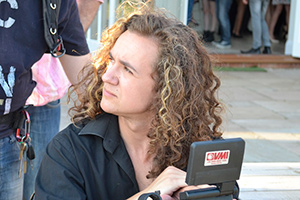
Drew Casson, who we made a feature film with called Hungerford.
I've just been on a call with him. He's doing post-production on our Netflix series called The Last Bus. He's ended up directing a show for Netflix.
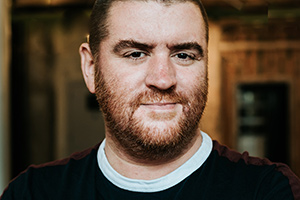
Paul Neafcy, he submitted a video to us which he made. He borrowed his mum's dressing gown and lit himself with an angle poise and did a character piece for us as a submission.
He's been head writer on this series for Netflix. We've just commissioned him for his second show which we're going to start pitching in the autumn.
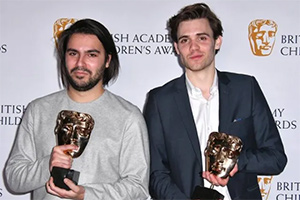
Tom Gran and Martin Woolley. When we started the company up, the office was this room that I'm in now [Miles was chatting to us from home on Zoom]. They came to my house with a little memory stick with a couple of films on it, animated films, and they then worked with us. They've been working with us really ever since, on and off. They've made a short called Good As Goaled , which was for the European Championships of 2016, for Disney, and that won a BAFTA. They're now developing shows with us for Viacom.
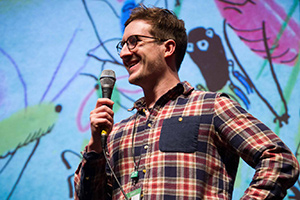
Jack Bennett was working with us as an animator when he showed one of the team his graduation short, Not The End Of The World. We loved what we saw, and we felt it had just so much heart - we really cared about what happened - and for us that is a really exciting moment. So, our creative producer Sarah Mattingley, together with the wonderful writer Ben Ward, worked with Jack to develop the characters in his short so they could support a series - and the results launched on Sky Kids in the summer as a twenty-part series called Dodo, which I am delighted to say has all the charm and warmth of the original - as well as being very funny! As a result of this process, we added another very skilled showrunner to the animation talent pool - and expect to see many more great things from Jack in the future.
Those are the people we've managed to achieve success with, but we've also had some lovely relationships with the likes of Gabby Best and Harry Deansway, people who'll be familiar to your readers probably.
We feel that, given the times that we live in, pretty much everything we do we want to have a layer of comedy. Some of the things that we do may not be pure out-and-out comedy, but even the thrillers that we develop, and the sci-fi we develop, we want it to have a layer of comedy and we're trying to steer away from dystopian, doom-laden fare because there's enough of that on the news, frankly! That's where we're at.
Although you say it's only 1%, picking up 40 projects is still quite a significant number of people getting new opportunities.
We're really, really proud of the projects we've worked on. We really try to be fearless in who we've got involved with. That was what we were trying to do. We were trying to take the fear out of development and commissioning. By getting people to work - well, for not very much money but enough money to make a difference - it meant that we could commission fearlessly, and I think it's paid off.
If Paul Neafcy had sent his little tape in his mum's coat and his angle poised lamp to any broadcaster, they'd have gone "come back when you're ready"... we didn't. We got involved and we made a series with him called Philip Human. We sold that series to Fullscreen. He then went on to write a series called Prank Me for Fullscreen, and now he's the head writer on The Last Bus. It's a pretty cool story actually.

So you're about to open up to new submissions... Are you looking to fit particular commissioning briefs?
To be honest, no. One thing I've learnt over my career - which has been somewhat longer than I would like to admit - is to never really develop to a brief from a platform.
You'll go and see a commissioning editor at Channel 4 or the BBC: "Oh, we're really looking for this, this and this at the moment...". Unless you've got something that's absolutely ready to go there and then in that meeting, by the time you've gone away and developed it and then submitted it to them, they've either changed jobs or forgotten what they told you or they're no longer looking for it.
So, we really just go for the things that we think could be great. When we're at our best, that's what we do. We try not to listen to all the noise coming out of there saying, "Oh, it really needs to be this, that and the other."
Obviously there are trends that we look for. So, there's a lot of demand for serialised content because of the streamers. So, obviously we listen to that, but that's music to our ears anyway because creatives have always wanted to make serialised content, it's just never really been possible until the streamers came in.
We don't approach this thing saying "oh, we're looking for this specific type of project." We're looking for a spark. We're looking for someone that we think we can work with, who's got an idea which has got strong characters at its heart.
It's all scripted. So, we don't do any formatted entertainment or anything like that, and no factual. We're looking for a spark; someone who we think we can work with. Someone who's got an original voice and an idea, and someone who we think we can help... and they believe we can help them, I suppose crucially as well.
So, it's an odd combination of factors, and you have to say an awful lot of 'no's, which is a shame, but if you give constructive feedback we've found that we don't get a lot of hate mail back.
So, yes, we don't start out thinking "what we're really looking for is a female-led, apolitical comedy" because by the time you've got it to the commissioning editor, that opportunity's gone.
So how do you filter down the ideas?
We have a lot of things that we look for.
We tend to be rather suspicious of empty concepts or heavily plotted shows without enough thought of who the characters are and why we would care. Lots of people send, for example, high concepts. So, "It's a heist movie with dogs and it's going to be great," and you go, "Yeah. But, what happens? What's it about? Who are the characters?"
We want comedy, heart, adventure and mystery. Those are the things that we look for. Heart being particularly important. So, we really want the audience to care about a character and what happens to them, and without that, we're generally going to say "no"... because that's the hardest thing to find, if it's not there in the first place.
Quite a few of the things that we get sent are just basically non-starters; they're not realistic in terms of being a proposition for further development or for television or streamers.
"Has it got a character at the heart of the show that you want to be, or be with, or that we're going to care about what happens to them?" That's the overarching question because the rest can sort of be... it sounds a bit glib, can be worked out.
That's what you're looking for: a really, really interesting character, under pressure in a really interesting situation that's either going to be funny or emotional or scary or mysterious.
You're taking live action ideas as well as animation, but it's worth pointing out you've got quite an animated slant on a lot for what you've done so far. Animation is not cheap and not quick to develop. So, you really have to think about your ideas?
Correct. Yes. The average gestation time for an animation is at least a year, but it can be three years.
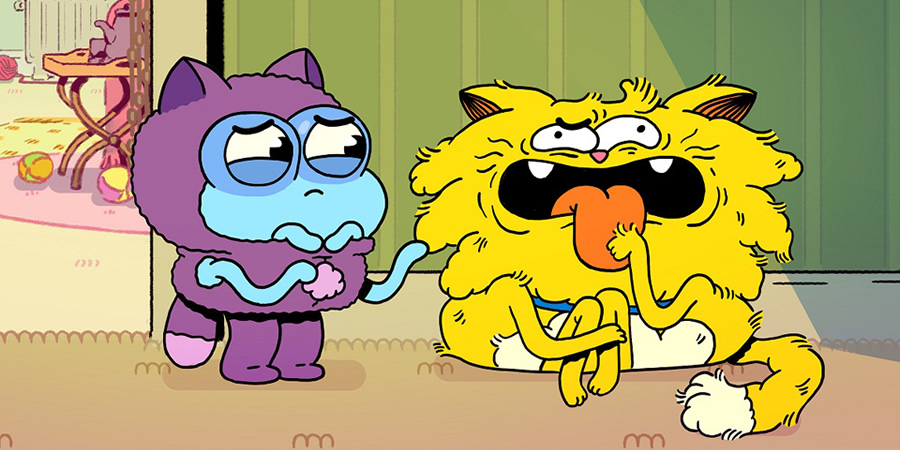
Counterfeit Cat, which I know you featured a lot on the site, and thank you for that, that was seven years between someone walking into my office when I was at Aardman and saying "I've got this idea", and actually pressing 'go' on the series production. That's not unusual.
There's a show now out on Milkshake [the Channel 5 kids brand]. It's called Circle Square. It's The Brothers McLeod, who you may have come across. That's been more than a decade in development.
You have to be able to fall in love with a show to go through the agony that is the process of getting it financed and produced and developed.
Animation is slower than live action. Live action can be much, much quicker. They're shorter orders usually and it's quicker to produce, and the budgets are easily comparable, if not more.
Your most recent animated series is Dodo, for Sky Kids. When it comes to content for children, do you have any target demographics?

We say we really start at 6, and we don't do pre-school. 6 is... it's right on the edge for us about how young we will go. So, Dodo is sort of 8 to 12 really. It's about a kid going to secondary school. So, the main character is about 11 or 12. So, we're looking at an audience a couple of years younger than that and then however much older people are interested in that kind of thing, hopefully up to 16.
So, we say that the people we make shows for are between 6 and 30. That's usually the age group of our main protagonists. We do hook-ups, not divorce. We don't do midlife crisis, we do quarter-life crisis.
We don't really do work-based projects. We tend to be doing school-y, student-y, footloose and fancy-free type projects. There's always going to be an exception, but that's where we're looking.
That youthful outlook is what we're looking for, and protagonists definitely in that age group.
So the submissions form opens in October. What then?
It's open for the whole month of October, and we've got no idea really how many submissions we're expecting. We've got a little [betting] book open on it, obviously. But I think it will be a few hundred, is what I imagine.
We'll start reading them and analysing them as soon as they start coming in. It's basically a team of two who do all the sifting and then they bring to the bigger group at Wildseed the ones they think have got potential.
I think, by the time it closes, we're going to be sifting and responding and filtering and so on at least up until Christmas.
And then I would imagine that, again, we'll have 20, 30 or 40 projects that we want to discuss more deeply and that will start probably happening in the New Year, once we've actually got all of them in and we can evaluate them against each other.
Our guess is that if we get two, three, four projects out of this, that will be a result, but we might find something where we go, "Great. We want to put 10 grand into this straight away and we want to make something or get a commissioned script," or whatever, but there'll be other projects where we'll go, "This could be something. What if we commission a treatment or an outline?," or whatever it is, just to sort of get a sense of whether this person... can we work with them, whether they respond to constructive criticism, whether they take notes, whether they actually want to collaborate or whether they think their piece is perfect and don't really want to listen...
There's a sort of process of getting to know people and starting a creative relationship to see if we think it's going to be mutually beneficial. That will probably start happening in the New Year.
We're almost certainly going to open the portal again in April [2022] and we will have made some decisions by that time and will have made some things and commissioned some people and have examples to talk about from the previous submissions round.
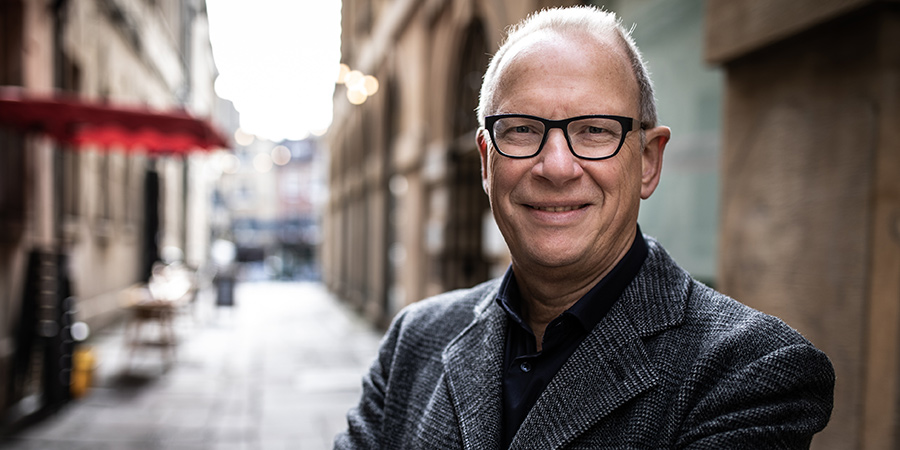
Creators are often concerned about topics like copyright and ownership. Perhaps you could just explain, when they're submitting to you, what rights they're handing over?
No assignment of rights takes place when they submit a project. So, the project remains theirs in its entirety. The only thing they give us the right to do is to look at it and to store it on our server for as long as we need to evaluate it.
So, they give us evaluation rights and that's all. No copyright, no options, nothing.
As I say, once we've evaluated the project, in January probably - if it's only 50 projects, it might go quicker; if it's 500 projects, it might go slower - but let's say in January, then the projects we're interested in we'll start having conversations with people. We will start discussing a deal.
It's also important to say that we always, if someone is brand new and they haven't got an agent or a lawyer or a proper media advisor, we will pay for them to consult one because we always want people to be properly informed about what it is that we're offering them. Again, we're trying to take the fear out of the process for them so that they can sign a contract with us with confidence.
The contracts vary, to be honest. We used to have a one size fits all contract, but we've been slightly varying it now. It depends how much we're spending, and it depends what we think the potential is.
If we're just spending a few hundred quid as a taster to see if it's going to work, we'll just take a very, very limited option. If we're spending 10,000 quid, and we're commissioning an hour long script or two half hour scripts or something, then we'll probably ask for an assignment, with turnaround so that if we don't follow it through it can go back to the creator.
Awesome. So, hopefully when people have read this they're going to want to start getting their stuff together to send you. What sort of material would you be expecting?
If it's an animated idea, it does help a lot to see drawings. They don't have to be fully realised things. But still characters. We don't need to see massive drawings of worlds or environments or locations or vehicles or space rockets or whatever it is. Ideally we want to see the characters and we want to look at them and go, "I get who that is."
For live action: a script, a treatment, an outline, a short film, a taster... all of those can work. And in animation as well. If people have got the resources or the skills, they can make a short bit of animation. It can be 10, 15 seconds just to demonstrate a particular aspect of their character. But, ideally they'd write something or draw something or create something which told us about the characters and why we should fall in love with them.
If people have scripts written, do you want to see them? If so, the first - say - 10 pages, or a full script?
Well, I don't mind. Whatever they've got. There's no advantage to submitting a full script over submitting a really good treatment or outline, unless they want to demonstrate their writing skills.
We'll read it. It will get read - or at least the first 10 pages will get read - and if it's readable then people will read the whole thing.
So, really we leave it up to people to decide. Not too much. We don't want several scripts. Choose the thing that best represents your idea and send that to us, and we'll be happy to have a look at it.
It all is sounding great!
The challenge is that there is still a high rate of disappointments and we try and manage that as best we can because it takes a lot of guts to submit an idea and to put yourself out there. So, we try and handle that as sensitively as possible but there are a lot of people that unfortunately are going to be disappointed a little bit.
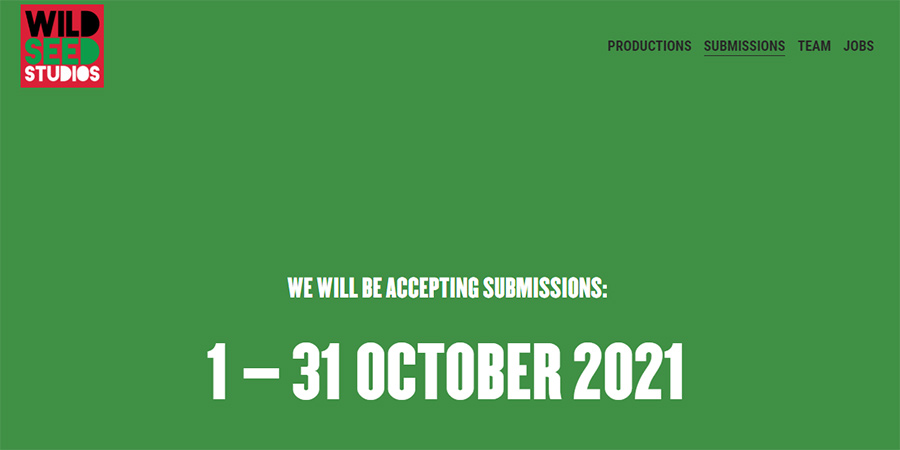
It's worth us emphasising you're looking for people who wouldn't automatically see themselves as creators submitting as well...
Yeah. So, in our first round we just put the news out there that we were doing this and we thought that by creating a level playing field we would get a huge diversity of voices. Now, we did in some ways, in that we got very good representation from working-class creators. But it tended to be male skewed and they tended to be largely white. Not exclusively, but largely.
So, what we've done this time is, we've put the news out there in the same way but we've also created an outreach programme. So, we've actually reached out almost exclusively to the people who wouldn't normally think of themselves as people who would submit to us; so, writers groups, creative groups, theatre... whatever, but mainly people with diverse backgrounds or underrepresented backgrounds.
The target we've set ourselves is we want it 50/50 women to men, and 25% people of colour. That's the target we've set ourselves and we know we're going to have to work hard to achieve that, but that's what we're trying to do. So, anything that your readership can do to help would be much appreciated.
Location is another factor. Wildseed is based in Bristol, so presumably you're not one of those companies that'll only work with Londoners. You'll take ideas from everyone in the UK?
Yes. Definitely. Very happily. That's the one thing that the pandemic has proved to us, hasn't it? We don't need face-to-face interaction anymore to be able to work together. Zoom and the like have made us able to feel connected to people wherever they are.
So any final advice for those now preparing to send you something?
One of the processes we've done this time is that when people express an interest in submitting an idea, they give us their email address and we will send them a link to a set of six videos which are sort of training videos on how to successfully create an idea for us, our view of how you should develop an idea and how you should think about an idea. They're short. They're between six and nine minutes.
Those are available to everyone who wants to submit an idea. Head to our website and sign up to our mailing list to get them.
You can submit an idea right up until the end of October. There will be no disadvantage or advantage to submitting on the 1st of October or the 31st of October. So, people should sign up now and they will get those instructional videos which will give them a clue as to what the types of things that we think make a good pitch.
Essentially: There's nothing to lose. We'd love to meet some new people, hear some new voices and be surprised. We look forward to whatever people are going to send us!
To find out more about Wildseed and their submission portal, and to sign up to the mailing list to get the links to the instructional videos, visit wildseedstudios.com
This article is provided for free as part of BCG Pro.
Subscribe now for exclusive features, insight, learning materials, opportunities and other services for comedy creators.

